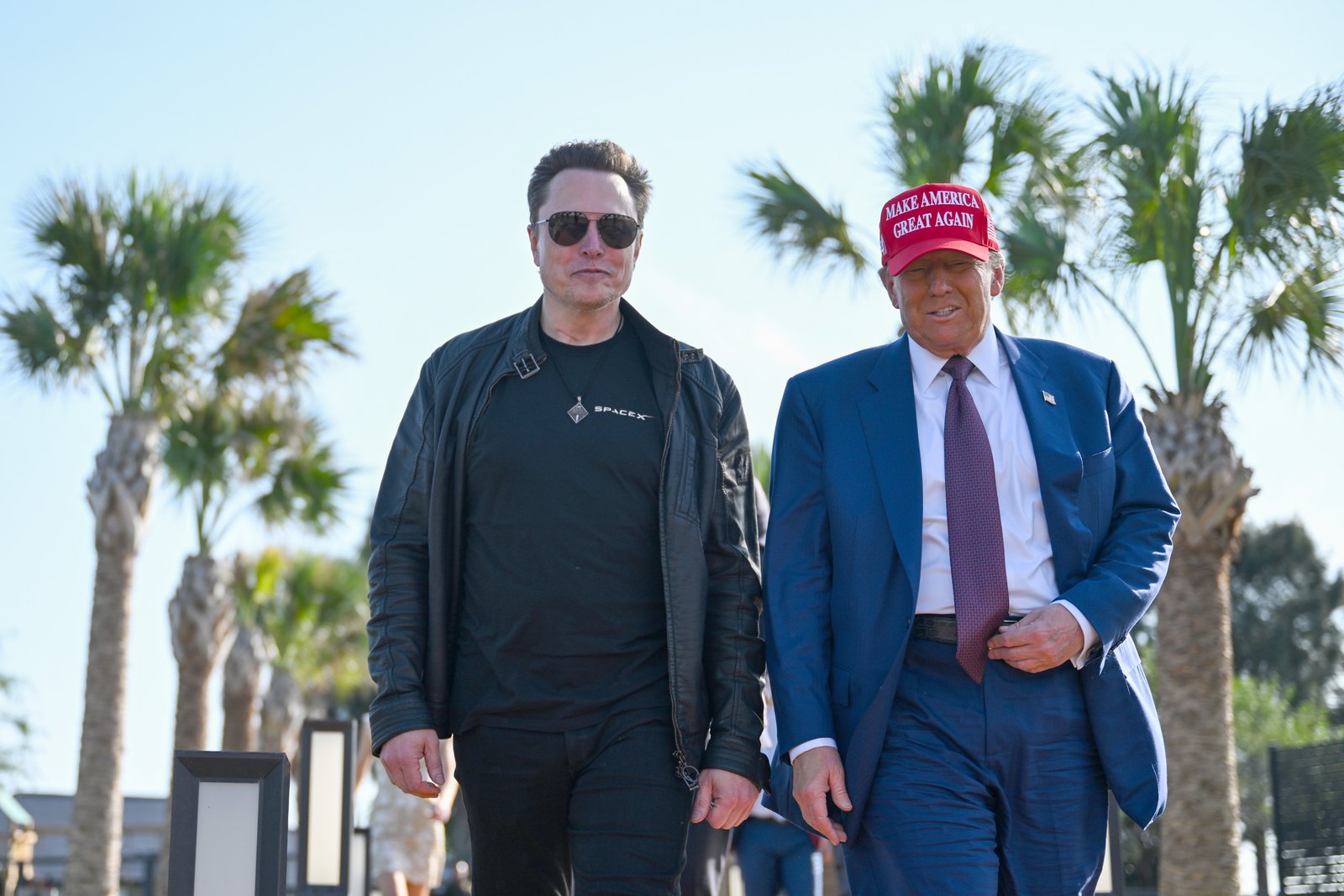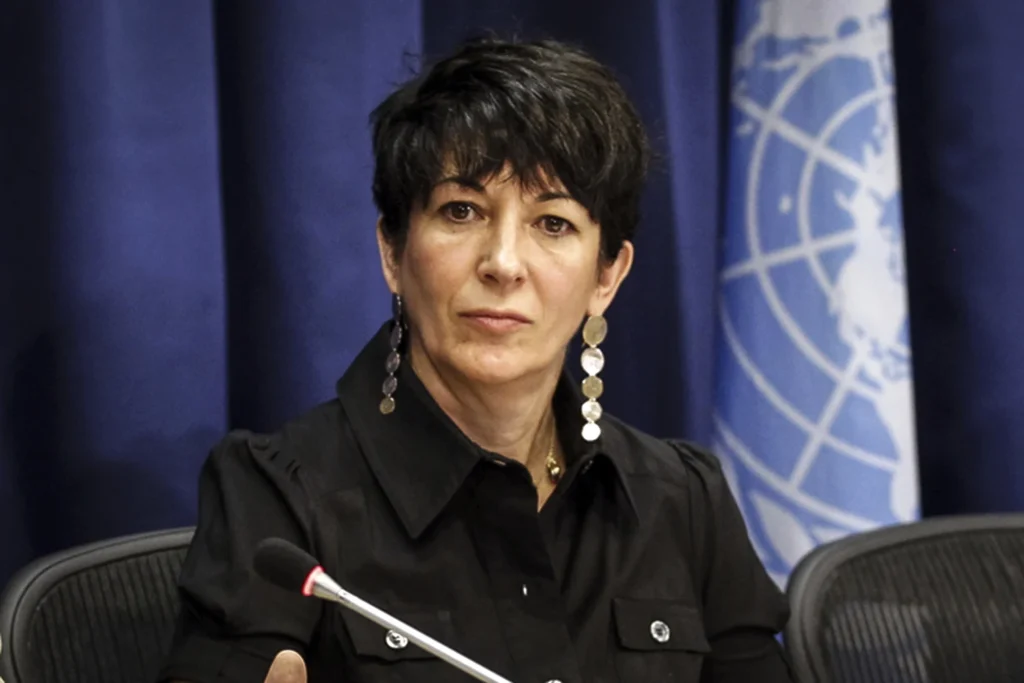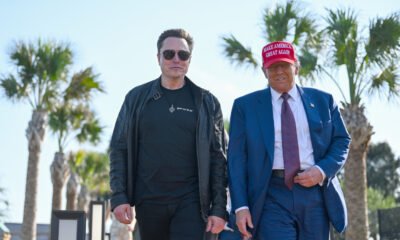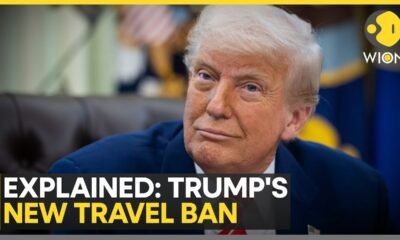Politics
Harvard Graduation Turns into Defiant Celebration as Trump Battle Reaches Boiling Point
With threats of federal cuts and student visa blocks looming, Harvard’s 2025 commencement becomes a powerful symbol of resistance, unity, and immigrant pride.

Harvard University’s 374th commencement ceremony unfolded under the weight of an intensifying political clash with the Trump administration.
Despite facing the threat of over $100 million in lost federal contracts and the suspension of its ability to enroll international students, Harvard stood its ground—delivering a message of unity, diversity, and resilience to a crowd of nearly 30,000.
Dr. Abraham Verghese, a Stanford physician, best-selling author, and immigrant, delivered a powerful keynote address that echoed far beyond Harvard Yard. “Part of what makes America great is that it allows an immigrant like me to blossom,” he said to thunderous applause, offering a pointed yet hopeful contrast to Trump’s isolationist policies.
Verghese, himself a recipient of the National Humanities Medal, directly addressed the turmoil surrounding the school. “A cascade of draconian government measures has already led to so much uncertainty and pain,” he said, calling on graduates to uphold rule of law and compassion in a time of political division.
While Harvard President Alan Garber didn’t directly mention the federal crackdown, his words still resonated. “To our students from across the globe—just as it should be,” he declared, prompting a standing ovation. Harvard’s student body includes over 27% international students, many of whom now face an uncertain future.
The tension reached a peak after President Trump proposed capping foreign student enrollment at 15% and demanded a list of international attendees. His comments, viewed by many as xenophobic, sparked student-led protests and rallies throughout the week, with graduates holding signs reading “We Belong Here” and “Education Has No Borders.”
Still, the ceremony remained peaceful, with moments of pride and inspiration outweighing fear. Class of 2025 graduate Yurong “Luanna” Jiang, originally from China, spoke about a global future built on shared humanity. “We’re starting to believe that those who think differently are not just wrong—they’re evil. But it doesn’t have to be this way,” she said.
NBA legend Kareem Abdul-Jabbar, addressing the senior class the day before, praised Harvard for “standing for freedom” while others in power bowed to pressure.
Meanwhile, a federal judge extended a temporary restraining order against the Trump administration, ensuring international students could remain enrolled—for now.
Graduates like Ahmed Riesgo admitted politics clouded the occasion, but still saw hope. “Harvard is in a tough spot,” he said, “but we’re here to celebrate what we’ve achieved. And that still matters.”
Fellow graduate Kaylen Rivers summed it up best: “We’re not powerless.”
At a time when elite education is under siege, Harvard’s commencement reminded the nation that knowledge, diversity, and courage still walk hand in hand—even under pressure.
Politics
Elon vs Trump Feud Threatens $48B in Space Contracts and Careers
From Musk’s contract empire to Trump’s threats, their clash could backfire—but the US isn’t ready for a space blackout

Elon Musk, the world’s richest person and CEO of SpaceX and Tesla, openly criticized President Trump’s $2.4 trillion tax-and-spending bill as a “disgusting abomination.” Trump retaliated by threatening to terminate federal contracts and subsidies for Musk’s companies—moves that could scrape $48 billion from space, satellite, and defense programs . On X, Musk escalated by threatening to “decommission” SpaceX’s Dragon spacecraft, though he reversed course after backlash This isn’t a casual Twitter spat—it’s a high-stakes standoff with real-world consequences.
SpaceX sits at the heart of U.S. space and defense infrastructure. It ferries astronauts and cargo to the ISS, runs mega satellite constellations via Starlink, and is the Pentagon’s favored military satellite launcher . Alternative providers—Boeing, Rocket Lab, Blue Origin—are stepping up, but they’re still playing catch-up Musk’s government contracts aren’t just beneficial—they’re essential. Messing with them risks disrupting NASA missions, national defense, and connectivity for remote communities.
—The path forward: temporary retreat or lasting damage?The Wall Street Journal reports that Musk’s companies could lose nearly $48 billion in contracts if Trump follows through . Meanwhile, Tesla stock tumbled ~14%, and even Trump Media shares sank following Musk’s public jabs Yet two signs of calm are emerging: Musk wiped his most provocative X posts and paused the Dragon decommission threat . Trump also publicly softened, saying he “wishes [Musk] well,” though hinted review of contracts might still be fair Still, legal experts warn this standoff could become a precedent for politicized contracting, potentially dragging public services into personal vendettas.
—What it means for the country
National security and space exploration are at stake. SpaceX missions are integral to U.S. presence in orbit. A paralyzed Dragon could halt ISS access. Starlink outages could disrupt frontline communications.
The PBS NewsHour calls this a “collision of personal vendetta and public goods,” while Wired warns that mass reliance on one private company makes the nation vulnerable
—Can common sense prevail?
The feud reminds us how precarious privatized public functions have become when billions and national missions depend on one person. Industry insiders like Bill Ackman have urged a cooling off; NASA and the Pentagon are quietly vetting alternative suppliers .
Lawmakers now face a choice: should political disagreements dictate space policy? Or should national interests demand a firewall between personal feuds and critical infrastructure?
Politics
Who Was Jeffrey Epstein and Why His Name Still Haunts the Rich and Powerful
From Wall Street wealth to the world’s most disturbing sex scandal, the life and death of Jeffrey Epstein remain one of America’s darkest mysteries.

Jeffrey Epstein was once known as a high-flying financier and socialite who moved comfortably among the world’s elite. But today, his name is synonymous with one of the most disturbing sex trafficking scandals in modern history. Even after his death in 2019, the shadows of Epstein’s crimes—and his high-profile connections—continue to ripple through politics, media, and law enforcement investigations.
Born in 1953 in Brooklyn, New York, Jeffrey Edward Epstein began his career in finance as a math teacher, later transitioning into banking. By the 1980s, he had made his way into the rarefied world of hedge funds, eventually establishing his own firm. Though his exact sources of wealth have long been a mystery, Epstein managed to build a sprawling network of powerful associates—from former presidents and royalty to billionaires and celebrities.
But beneath the glittering exterior was a far darker story. Epstein’s crimes came to light in the early 2000s when he was accused of sexually abusing underage girls at his Palm Beach mansion. In 2008, he took a controversial plea deal that allowed him to serve just 13 months in a county jail—most of it on work release—despite serious allegations of child sex trafficking.
That deal sparked public outrage and renewed investigations. In 2019, Epstein was arrested again, this time on federal charges for running a sex trafficking ring involving dozens of underage girls, some as young as 14. Prosecutors described how he lured vulnerable teens with promises of money and education, only to exploit them in a horrific web of abuse, often aided by powerful enablers.
Just a month after his arrest, Epstein was found dead in his jail cell under highly suspicious circumstances. Officially ruled a suicide, his death sparked conspiracy theories and deep public mistrust, especially since he had been taken off suicide watch days before. The cameras outside his cell reportedly malfunctioned, and guards admitted to falsifying records.
At the center of the public’s demand for justice are the Epstein files—a vast trove of documents, testimonies, and evidence that reportedly name several high-profile individuals. Many documents remain sealed, though some were released through lawsuits involving Ghislaine Maxwell, Epstein’s longtime associate who was later convicted of grooming and trafficking girls for him. She is now serving a 20-year sentence in federal prison.

One of Epstein’s most vocal accusers, Virginia Giuffre, claims she was trafficked to several wealthy men, including royalty and politicians. Her lawsuits brought global attention to the depth of Epstein’s crimes and the scope of his influence.
Despite his death, the Epstein scandal is far from over. Calls for full transparency have only grown louder, especially with renewed interest following Elon Musk’s claim that high-profile figures like the current US President are named in sealed files. The mystery around Epstein’s connections, the true reach of his criminal network, and the unanswered questions about his death continue to fuel global headlines.
What remains is not just a case of individual guilt, but a mirror reflecting the intersection of power, privilege, and impunity. And until the full truth comes out, Jeffrey Epstein’s name will remain one of the most haunting in modern American history.
Politics
Elon Musk Drags Trump Into Epstein Scandal and Sparks Firestorm Over Hidden Files
The Tesla CEO accuses Donald Trump of being named in sealed Epstein files, escalating an already heated political feud to explosive new levels.

A high-stakes verbal showdown between two of the most powerful figures in America—Tesla CEO Elon Musk and US President Donald Trump—has just escalated into explosive territory. In a shocking twist on Thursday, Musk threw out a bombshell accusation: that Trump’s name appears in still-unreleased Jeffrey Epstein files, which is why, he claims, the documents have been kept away from the public.
“Donald Trump is in the Epstein files. That is the real reason they have not been made public. Have a nice day, DJT!” Musk posted on X (formerly Twitter), instantly sending shockwaves across political and media circles. He urged followers to bookmark his post, hinting that the truth would eventually be exposed.
This latest jab adds fuel to an already fiery feud between the tech mogul and the President. It follows Musk’s abrupt exit from his role as head of the Department of Government Efficiency (DOGE), which he left to refocus on his embattled businesses.
But what exactly are the Epstein files Musk is referring to?
The Epstein files are a collection of investigative documents, testimonies, and court records tied to convicted sex offender Jeffrey Epstein and his network of alleged co-conspirators. While some of these documents have been unsealed in stages—particularly through lawsuits involving Epstein’s former partner Ghislaine Maxwell—a significant portion remains sealed or partially redacted.
Earlier this year, after Trump took office, the US Department of Justice released a new batch of Epstein-related documents, many of which had already been leaked or reported in fragments. However, public demand to release the rest of the files—especially those rumored to contain names of high-profile individuals—has only intensified.
The inclusion of Trump’s name in this narrative isn’t new, but Musk’s tweet has brought it back into mainstream conversation. The US President and Epstein were known to share a social relationship in the 1990s, often seen together at events, including a now-viral 1992 video at Trump’s Mar-a-Lago estate. Flight logs and testimonies suggest Trump flew on Epstein’s private jet multiple times during that period.
Although Trump has repeatedly denied any close association—saying in 2019 that he hadn’t spoken to Epstein in over 15 years and had banned him from Mar-a-Lago—the optics and Musk’s renewed allegations have raised eyebrows. The two men reportedly had a falling-out in 2004 over a Florida real estate deal, marking the beginning of their public distancing.
Epstein’s death in 2019, officially ruled a suicide, has never ceased to stir conspiracy theories and political intrigue. The businessman was facing federal charges related to sex trafficking of minors at the time of his death, and was believed to have connections to elite figures across politics, finance, and entertainment. His longtime associate, Ghislaine Maxwell, is now serving a 20-year prison sentence for her role in recruiting and grooming underage girls.
While Elon Musk’s accusation has yet to be backed by formal evidence, his immense influence has reignited demands for transparency. FBI Deputy Director Dan Bongino confirmed on Fox News that more documents are slated for release in the coming weeks.
For now, the public waits—with growing curiosity and unease. Will these files truly bring explosive revelations? Or is this just another round in the ongoing Trump-Musk power saga?
-

 Personality6 days ago
Personality6 days agoDonald Trump’s net worth reveals the fortune behind the former US President and business mogul
-

 Entertainment5 days ago
Entertainment5 days agoJonathan Joss Shot Dead at 59 in Texas Tragedy His Husband Says Was Hate-Fueled Crime
-

 Entertainment7 days ago
Entertainment7 days agoTop 5 Oscar Moments That Shook Hollywood and the World
-

 Personality5 days ago
Personality5 days agoLionel Messi’s Net Worth Revealed and How the Football Legend Built His Multi-Million Dollar Fortune
-

 Tech1 week ago
Tech1 week agoTop 7 AI Tools Every Corporate Employee Should Use in 2025.
-

 Films5 days ago
Films5 days agoRobert Pattinson’s Top 5 Films That Showcase His Evolution from Teen Idol to Indie Icon
-

 Films6 days ago
Films6 days agoJames Gunn’s Net Worth Revealed How the Filmmaker Built His Fortune
-

 IPL5 days ago
IPL5 days agoRCB Finally Lifts the IPL Trophy After 18 Years of Heartbreak and Hope
























